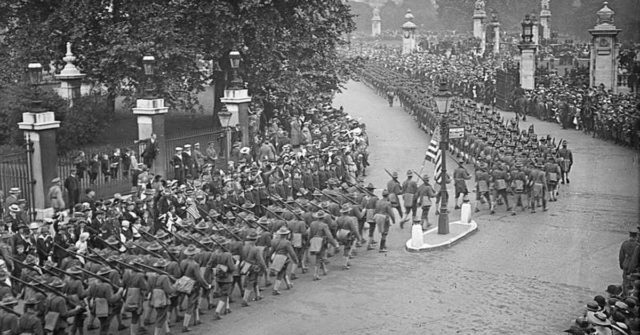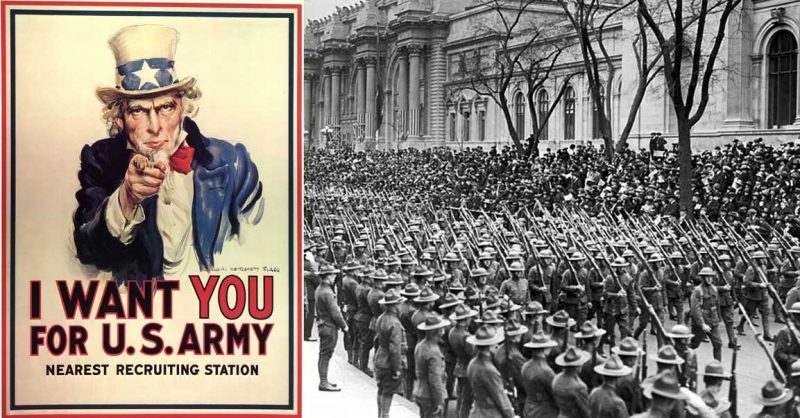War History Online presents this Guest Article from Christopher Kelly
Memorial Day this year calls on all Americans with particular significance. It calls on us to look backward at our past and forward to the many uncertainties and challenges facing our nation overseas. Important anniversaries over the course of the year have served as powerful reminders of that past.
This past April, we commemorated the centennial of the American entry into World War I. President Wilson led us into the “war to end all wars,” ending America’s traditional isolationism. Over a hundred thousand Americans would be killed in World War I, a war that claimed around 17 million total victims. Wilson conceived of the League of Nations as a means of ending costly and wasteful wars, but the US Senate balked at joining the League. The harsh terms of the Treaty of Versailles then created a twenty-year truce rather than a lasting peace. Appalled by the cost of war and intoxicated by the Roaring Twenties, many Americans retreated back into an isolationist attitude, embracing Charles Lindbergh and the America First movement.
But in 1939, Hitler invaded Poland, plunging the world into the costliest war in human history. Over the course of just under four years, over 16 million American men and women served in some capacity in the war. Today, fewer than a million World War II service vets are still alive.
This year, 2017, is the 75th anniversary of perhaps the most significant year in World War II, for 1942 was essentially the turning point in the war. That year featured Doolittle’s Raid on Tokyo and the battles of Midway, El Alamein, and Stalingrad. Up until 1942, the Axis was victorious on all fronts. After 1942, Axis forces were in full retreat. Where were you in ’42?
Seventy-five years ago this year, the classic film Casablanca was released. When asked about his nationality, Rick Blaine, played by Humphrey Bogart, replied, “I’m a drunkard.” But Rick could not remain neutral when confronted with the brutal reality of fascism. The premiere of Casablanca, which won the Academy Awards’ Best Picture of the Year in 1942, was rushed forward to capitalize on the American landings in North Africa in Operation Torch. Casablanca helped to explain to skeptical Americans why World War II (especially in Europe) was America’s fight.
Americans responded to the call and went overseas to fight in record numbers. Just over 400,000 mostly young Americans would never return from their duties in the Second World War. This Memorial Day, many Americans will visit cemeteries such as Arlington in Virginia, and many more around the nation and the world.

Memorial Day imposes a duty on all Americans to remember the sacrifice of our fallen heroes, and to reflect prayerfully on how we can best steer a course through our dangerous and turbulent world. We are compelled to remember the necessity for American engagement in the world, but also its staggering price in terms of blood and treasure.
**
Christopher Kelly is the author, with Stuart Laycock, of America Invaded: A State by State Guide to Fighting on American Soil (coming September 2017); America Invades and Italy Invades: How Italians Conquered the World, and the editor of An Adventure in 1914.
